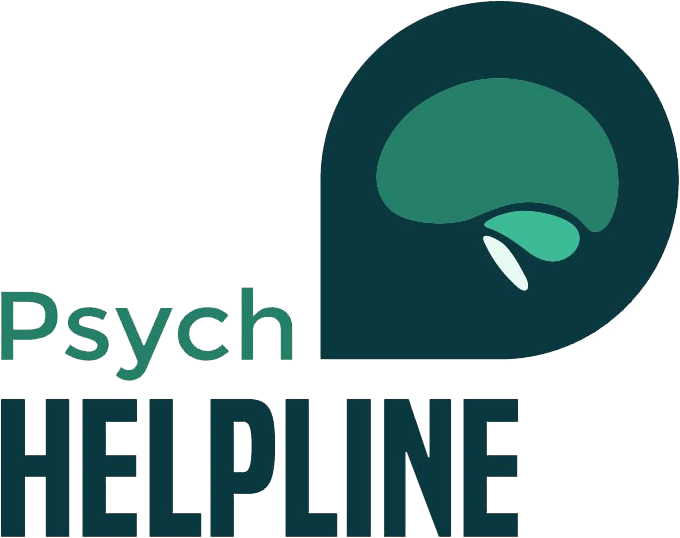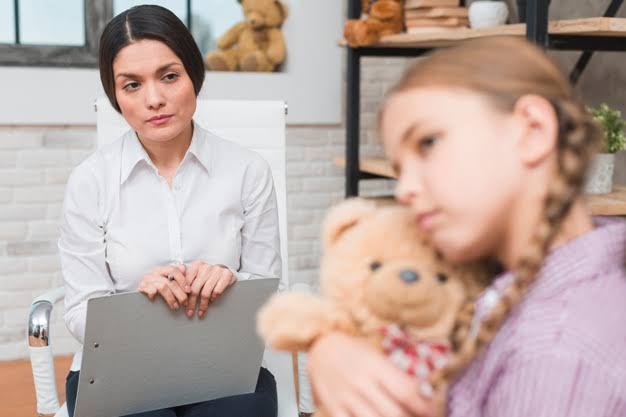Table of Contents
Divorce proceedings bring forth complications that are absolutely impossible to avoid. There’s a long list of troubles that a soon to be separated couple has to look into. What’s most overlooked, is the impact of their separation on their shared children. The trauma of that sort of scenario can really mess up kids to their core. Some commonly seen patterns include; the lack of trust, attachment issues, mental health anomalies resulting from neglect, etc. Reunification therapy is a reconciliation measure often used to reunite broken bonds among families. In most cases, a non-custodial parent approaches court with this proposition to mend broken connection with kids living with a custodial parent.
It’s a form of family therapy often utilized during or after divorce proceedings to reunify one or both parental figures with their children. Additionally, reunification therapy can actually help in the manifestation of a normal childhood after the separation of parents. It creates better chances of interpersonal communication among broken families and addresses the feelings of the children involved. Apart from divorce proceedings, reunification therapy also aids in returning to normalcy if a child had been previously moved to a group or foster home.
What Are The Goals Of Reunification Therapy?
- The facilitation of parenting time against all odds
- The fixation of any adverse situations perpetuated by parents that might not be in the best interest of their children
- Insurance of the fact that the children involved in a divorce proceeding don’t become completely reliant on one parent under the action of malignant influence or manipulation
- To make co-parenting easier to manage among separated or soon to be divorced parents
- To make parents realize that they’ve got to share the entire scenario with their kids instead of sheltering them with false promises
- Aiding parents in understanding their child’s emotional needs at this critical part of their life
- The facilitation of better communication and parenting skills among divorced couples
- Providing the parents with a chance to establish boundaries and work on their anger towards each other on the side

In Which Cases, Reunification Therapy Become Absolutely Necessary?
Reunification therapy is often court-mandated to ensure that the children in question don’t get affected after/during/before the divorce proceedings of their parents. It’s not always court mandated as some newly divorced parents voluntarily indulge in it to become better guardians for their shared kids. One thing that needs to be remembered is that; court-ordered reunification therapy always incorporates co-parenting work. Consequently, apart from the work done on nurturing child-parent relationships, therapy also covers the conflicts among ex-partners that could be resulting in bad parenting.
Situation 1: Abandonment & Alienation
In a large majority of cases, the children of a divorced couple struggle with the lack of contact with one of the parental figures. Perhaps the conflict between the ex-partners could be the reason behind it, or the sheer lack of propriety shown by one parent towards the children. In a few cases, one parent seems to be creating communication barriers among the children and their other parent resulting in alienation. The parent in question might try to redirect the anger they have for an ex-spouse towards their shared kids.
As a result, the forcefully absent parent turns into a villain and the affinity towards the parent who’s creating barriers turns stronger. Children might resort to anger by refusing to initiate contact with the parent who’s been turned into a “bad guy”. As a result, the custodial parent turns into the sole receiver of all their affection and support. If the children involved are still pretty young, this whole scenario can result in the establishment of abandonment issues further tarnishing the child-parent relationship.
Situation 2: Troubles Related To Co-parenting
Most divorces don’t end up on good terms. As a result, there are bound to be some personal or financial disputes among both parties. What needs to be noticed is that these personal disputes among ex-spouses or separated couples can project themselves onto their kids. Consequently, it affects their ability to co-parent their kids properly. Reunification therapy in this scenario can help newly divorced parents understand how they can start taking steps in their child’s best interest.
While co-parenting kids with an ex-partner there can be way too many complications at hand if two ex-partners aren’t on good terms they might never be able to make decisions with their better judgment. Even something as minor as deciding a shared schedule or visitation hours for your children while co-parenting can create a ruckus with a lack of proper parenting. Thus reunification therapy can guide both parties into choosing a middle road for the sake of their kids. Additionally, it turns the whole co-parenting scenario into a new norm a bit more smoothly. Strategies learned during those sessions can also help in returning the trust the child in question must’ve lost during the divorce proceedings.
Situation 3: Manifestation Of A Safe Environment or Justified Rejection
In an unlawful scenario, if the kids have been removed from a household, any safety-related reasons might be involved. Perhaps the contributor to the children’s feeling of unsafety was one of the parental figures e.g. instances of emotional or physical abuse towards another parent or sibling, mental breakdowns, substance abuse, etc. Undoubtedly, if the environment around the kids doesn’t seem safe there’s a need for immediate betterment. Reconciliation therapy creates the chances for awareness in this regard.
Consequently, based on what’s been now learned the environment can be made slightly safer and anything similar can be avoided in the future from happening. If the child involved in this toxic scenario has harboured any ill feelings regarding the previously wrongful parent then reunification therapy caters to that too.
Scenario 4: Sorting Custody Related Matters
Joint custody is a big probability among a lot of divorce cases. Yet, in a few cases, sole custody can be a better option if one of the parents just might not be a good influence for the kids. Reunification therapy in this case ensures that the therapist takes notes of the interactions. In the end, he/she is better aware of each parent’s parenting habits and interactions with their kids. Thus choosing the right custodial parent becomes much easy for the court based on the results of the reunification program.
Reunification Therapy: The Probability Of Success
Reunification therapy usually gets divided into different phases. For instance; earlier phases are more dedicated to individual discourse and in the later phases, every person involved in the situation gets to be in a group setting. At the beginning of those sessions, each client’s bound to be slightly apprehensive. Just make sure that you’re being honest about the complexities you’re facing in terms of parenthood and you’ll be more likely to be aware of every solution by the end.
Undoubtedly, the success rate for reunification therapy greatly relies on each participant’s dedication and consent. One can’t really push a child or one of the parents to be more engaging. So, mostly it’s up to each of the clients to be more engaging and ever-present until the problems get resolved. Reunification therapy can be either short-term or long-term depending upon each scenario. Usually, a course of 8-12 sessions harbours positive results. Clients might need to make additional outside visits a norm too if they actually want to see positive consequences.
If one of the parents suspects gross actions at the hand of another parent he/she ought to take a stand to ensure the success of Reunification therapy. The manipulative tactics carried out by another parent can result in alienation, thus the parent that’s becoming a victim of that tactic can lawfully request a more individualized approach to reunification therapy. The court would be well aware of what goes on during those individual sessions via proof, so they’ll be well aware of the success rate.

Reunification Therapy: How Does It Proceed?
The Initiation
- If both parents have separated on good terms and hold zero grudges they can utilize reunification therapy to make this process much smoother for the shared children. It ensures that the children don’t harbour any ill feelings or complexes towards any of the parents involved. Additionally, it assures that the parents share the bond they’ve always shared with their kids and avoid co-parenting mess-ups.
- In case of a messy divorce or personal conflicts, the custodial parent may try to create communication barriers between the kids and the non-custodial parent. In that case, the latter can request reunification therapy.
- Once the court-ordered mandate is released, the non-custodial parent can reestablish contact via a therapy program with the kids. Furthermore, the court will be well aware of the settings, environment, and safety of the kids involved.
- Your reunification therapist will require relevant certificates and substantial proof of your record. Thus in special cases involving the presence of a parent with a history of physical abuse, mental illnesses, or substance abuse, the court will have relevant information and confirmation of the children’s safety in that parent’s presence.
The Role Of The Therapist
- A good therapist in this situation leads the way by taking note of the situation instead of looking at preconceived notions. As a result, even if the custodial parent has a lot more negative to say about the non-custodial parent. The therapist pays no heed to that as it can still be some kind of manipulative tactic. He will then identify the dynamics of the family and the lackings at both ends.
- It’s one of the biggest responsibilities of a therapist carrying out reunification therapy to take a look at any court documents. These documents are highly essential for the situation as they could include information on visitation agreements, court orders, and custody evaluations.
- Moreover, the therapist in question first carries out individual evaluation sessions. The purpose of these individual sessions for both children and parents ensures that they’re not rehearsed, influenced, or manipulated by someone else. These sessions give each of the children a chance to voice out their actual feelings and complaints.
- A therapist never forces the children involved to re-establish contact with a parent. Rather, he counsels them into making a decision that would be in favor of their betterment. It’s a therapist’s job to ensure that the kids involved are well aware of the benefits of being in contact with both parental figures. Looking at the brighter side can influence the presence or absence of normalcy in a child’s life.
- Later on, joint sessions between the parent and children will prevail. Such sessions in the presence of a therapist will create opportunities for both parties to work on things that need improvement. Thus without blaming each other the parent in question can find means to improve their relationship with their kids.
- During joint sessions, the therapist will take cues from the interactions between the non-custodial parent and their children. These interactions may increase gradually over time in case the children feel more stable in the presence of that parent. Interactions might revolve around common things like playing games, enjoying a meal together, working on an academic project, etc
- After all court-ordered sessions, the therapist will submit a final report of the results to the court.
Final Words
A child belonging to a broken family can harbour a lot of sadness and anger along the way. Thus it’s a parent’s role to ensure that they’re not giving up on their kids. Kids need to know that they’re not being abandoned as a result of their parents’ divorce and even a non-custodial parent is still committed to them. If a child has become depressed or is dealing with anxiety stemming from divorce-related stress. Apart from reunification therapy, family therapy also becomes a necessity. Your child’s initial reluctance on initiating contact with you might be because of the anger they’ve been experiencing. It’s a problem that can still be fixed. So, if the scenario allows, instead of letting this situation continue work on meditation via reunification therapy.







